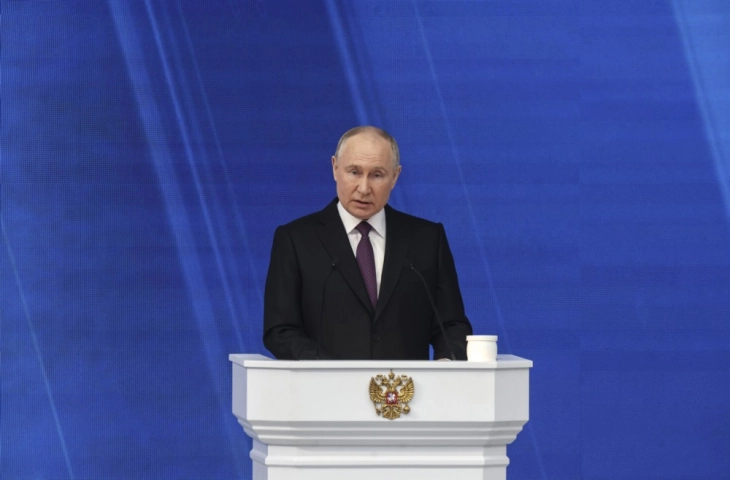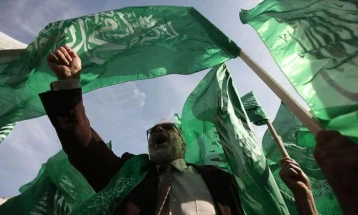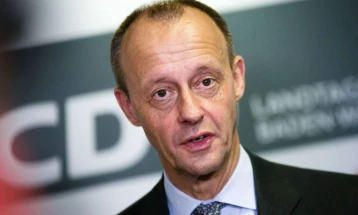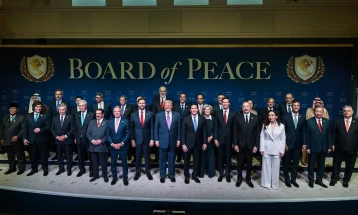Putin warns of nuclear war if NATO states send troops to Ukraine
- Russian President Vladimir Putin warned of a potential nuclear war if NATO states were to militarily intervene in his conflict in Ukraine as he held his annual State of the Nation address two weeks before his expected re-election.

Moscow, 29 February 2024 (dpa/MIA) – Russian President Vladimir Putin warned of a potential nuclear war if NATO states were to militarily intervene in his conflict in Ukraine as he held his annual State of the Nation address two weeks before his expected re-election.
The West should remember that Russia also has weapons that could hit targets on its territory, he told 1,000 representatives from politics, business, culture and religion.
The 71-year-old emphasized that any escalation and the use of nuclear weapons could lead to the "extinction of civilization." This was not a "cartoon film," Putin said.
NATO countries have sent Ukraine substantial amounts of military weapons to try to repel Russia's invasion, now into its third year, but the Western defence alliance has yet to send its own troops.
The consequences of such a move could be tragic, Putin said, while at the same time rejecting claims that Russia wanted to attack the West as "nonsense."
However, Russia will further strengthen its western flank due to the supposed danger posed by the expansion of NATO, Putin added, although he also offered to enter into dialogue with the United States over
strategic security in the world.
Russia and the US have suspended or cancelled several disarmament treaties in the course of the Ukraine conflict. Putin said Russia would be ready for new talks if the US stopped setting its sights on a strategic defeat for Moscow in Ukraine.
The war, which many Russians assumed would be over quickly when the invasion began in February 2022, is in a state of stalemate despite recent small tactical gains for the Russians.
But Putin told the audience, including both houses of parliament, that "a clear majority of the population" support his war in Ukraine - which he still refers to as a "special military operation."
He thanked citizens and businesses for their backing for the conflict and held a minute's silence during his speech for fallen soldiers.
Putin also reminded delegates that 2024 is the 10-year anniversary of Russia annexing the Crimean peninsula from Ukraine. It is still not recognized internationally as part of Russia and Ukraine has vowed to win it back in the war.
He said the country was proud of what it had achieved in incorporating Crimea. "Together we can achieve everything," he added.
It is Putin's 19th State of the Nation address and comes before the March 15-17 presidential election.
It is considered certain that Putin will be confirmed in office for the fifth time. The opposition is basically not permitted and his fellow candidates support his policies and are seen by government critics as mere decoration.
Opponents of the Kremlin speak of a sham election.
High-profile critic Alexei Navalny recently died in mysterious circumstances in a prison camp, while the Russian Central Election Commission refused to register anti-Kremlin journalist Yekaterina Duntsova and anti-war activist Boris Nadezhdin as candidates.
In Putin's speech, which was broadcast on state television, he still appeared to be campaigning despite a lack of true opposition by launching a series of social reforms.
He said around 1 trillion roubles ($10.8 billion) would be spent on modernizing the healthcare system and acknowledged that 13.5 million people lived under the poverty line in Russia - especially in big families.
Around 30% of large families have a precarious financial position and this number should be cut to 12% by 2030, he said.
By improving the healthcare system and investing in 350,000 new sports facilities over the next few years, life expectancy in Russia is set to rise from 73 to 78 by 2030, he added. The European average is already 80.
Putin, in power for more than 24 years, also announced the minimum wage is to rise from 19,000 roubles a month to 35,000 roubles by 2030.
Heavy NATO sanctions amid his war in Ukraine have hit the Russian economy, but experts are surprised how resilient it has been.
Photo: EPA







